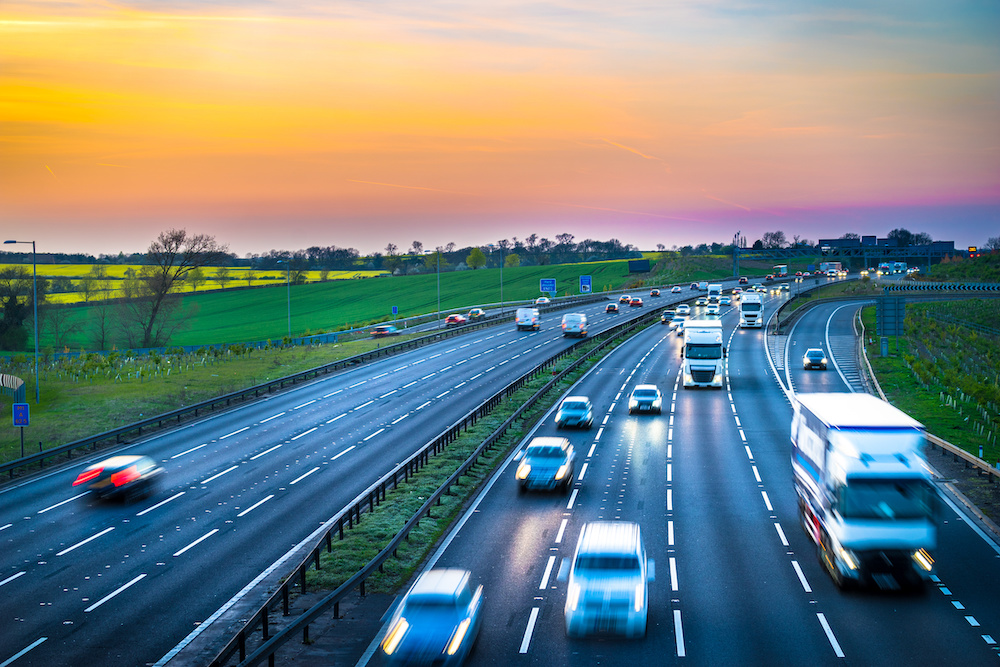
The Office for National Statistics (ONS) latest report, ‘UK Environmental Accounts: 2023’, reveals that the transport and storage sector’s greenhouse gas emissions reduced by 9% in 2021 – the largest decrease of all industry sectors. The ONS data also shows a dramatic, but temporary, 11% reduction in UK emissions during Covid-19 lockdowns.
And while transport and storage companies are playing their part in cutting greenhouse gas emissions, by contrast consumers and the energy sector increased their emissions by 7% between 2020 and 2021. Consumer emissions are now the single largest cause of carbon pollution in the UK, creating 26% of the entire UK total of greenhouse gas emissions.
In his analysis of the ONS data, ParcelHero’s Head of Consumer Research, David Jinks said: “The good news is that the UK is getting greener. From a peak 852 million tonnes of carbon dioxide equivalent (Mt Co2e) a year in 1991, UK total emissions fell by 41% to just over 502 Mt Co2e in 2021. However, a closer look reveals that some sectors are achieving more significant cuts in their carbon footprint than others.
"The transport and storage sector has made great strides in reducing its emissions. At its worst, in 2005, it created nearly 99 Mt Co2e a year. By 2021, that had fallen by 42%, to 57 Mt Co2e. Freight transport by road has helped play a role in this reduction, falling from a peak of 15 Mt Co2e in 1997 to 13 Mt Co2e today.
"However, the UK cannot be complacent. Energy companies’ emissions jumped 7%, from 80 Mt Co2e in 2020 to 86 Mt Co2e in 2021, and consumer emissions, such as heating and travel, also rose 7%, from 125 Mt Co2e in 2020 to 134 Mt Co2e in 2021. That’s still a significant reduction from the peak of 163 Mt Co2e consumers reached in 2004, however.
"A sizable proportion of consumers’ emissions are created by travel. Back in pre-Covid 2019, travelling to work, the shops, etc created 69 Mt Co2e. During the lockdown of 2020, that total plummeted 11% to 54 Mt Co2e, before rising back a little, to 59 Mt Co2e, in 2021.
"Some critics claimed the boom in home deliveries during lockdowns would create a significant increase in pollution, and there was even talk of a new “green” tax on them. However, as we’ve seen, overall greenhouse gas emissions from transport & warehouse operations actually fell during this period. That’s down to a mix of greener vehicles, fewer jams as people stopped commuting, and far more successful first-time deliveries, because so many people worked from home.
"Looking in closer detail, there was a slight increase in emissions from postal & courier services, from 1.79 Mt Co2e in 2019 to 1.8 Mt Co2e in 2021. However, this is more than offset by the reduction of 10 Mt Co2e achieved through fewer consumer shopping and work trips.
"In terms of the wider impact of Covid, this is brought most sharply into focus by the dramatic fall in emissions created by air transport services. In 2019, they stood at 41 Mt Co2e. In 2020, they fell a whopping 58% to 17 Mt co2e. And in 2021, they declined still further, to 16.8 Mt Co2e, as air transport struggled to take off again.
"While Covid lockdowns created considerable stress for some people, they resulted in fresher air for everyone. In 2019, across the UK, we created 550 Mt Co2e of greenhouse gases; in 2020, this plummeted by 11% to 488 Mt Co2e. The inescapable conclusion from these results is that if more people worked from home and took fewer flights abroad, the UK could play a major part in reducing the threat of global warming and the quality of the air we breathe would be significantly improved."
To discover more details about the latest research into home deliveries’ carbon footprint, and the potential impact of a new 'green' tax on them, read the full ParcelHero study at: https://www.parcelhero.com/research/greenest-study